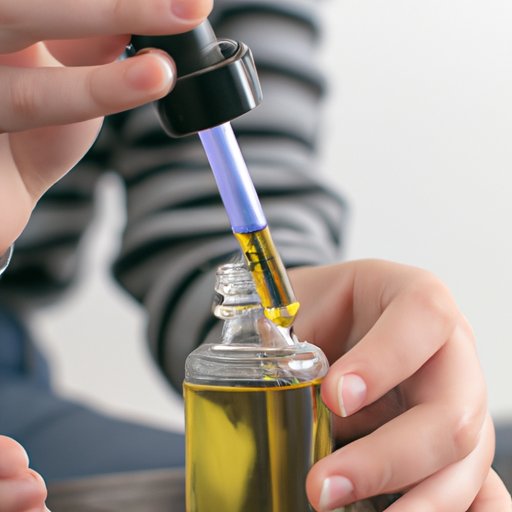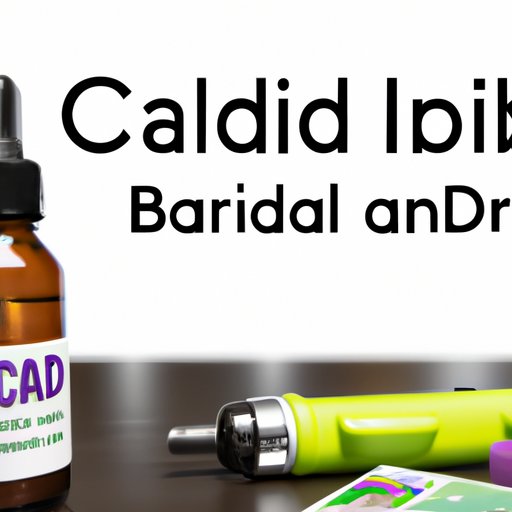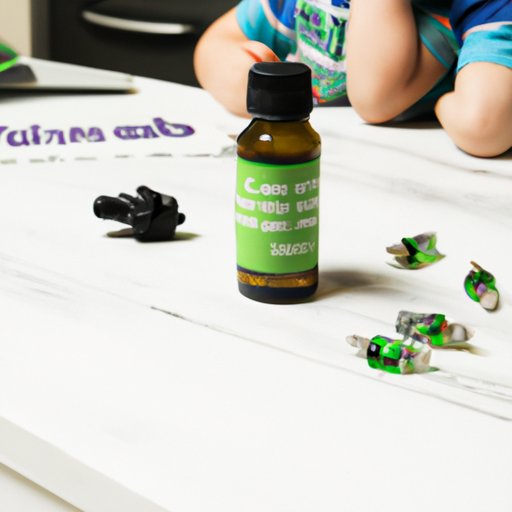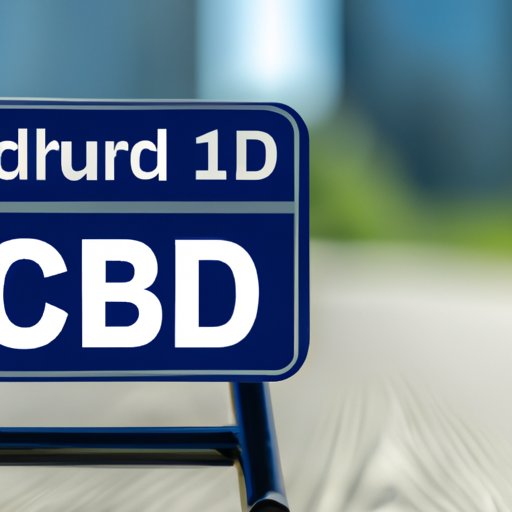Is CBD Legal for Minors?
The cannabidiol (CBD) industry has gained immense popularity in the past few years, thanks to its potential health benefits. However, when it comes to minors using CBD products, the legalities become a bit complicated. In this article, we will explore the laws and regulations governing CBD use among minors to help parents/legal guardians decide if CBD is safe and legal for their children.
Understanding the Legalities of CBD Use for Minors
CBD is a naturally occurring compound found in the cannabis plant, which is known for its potential therapeutic properties. However, CBD is not psychoactive, unlike tetrahydrocannabinol (THC), the compound responsible for the “high” associated with marijuana. Despite this difference, CBD’s legal status under federal law is still unclear, primarily because the U.S. Drug Enforcement Administration (DEA) has yet to remove CBD from Schedule I of the Controlled Substances Act.
However, the Agricultural Improvement Act of 2018, also known as the Farm Bill, legalized hemp and hemp-derived products on a federal level. Hemp is defined as the Cannabis Sativa L. plant containing less than 0.3% THC by dry weight. Therefore, CBD products derived from hemp that meet this requirement are also legal under federal law.
State Laws Regarding CBD Use for Minors
Despite the federal legality of hemp-derived CBD, state laws regarding CBD use for minors vary widely. Some states allow pediatricians to recommend CBD to minors for certain medical conditions, while others limit CBD use for minors to patients with severe forms of epilepsy. In some states, CBD use for minors is entirely illegal.
It’s essential to understand local laws and regulations regarding CBD use for minors to avoid any legal complications. Before buying any CBD product for a minor, ensure that the product is legal under your state’s laws.
CBD and Minors: What You Need to Know about the Law
The Food and Drug Administration (FDA) regulates CBD products under the Federal Food, Drug, and Cosmetic Act. According to the FDA, CBD products intended for human consumption or use may not be sold or marketed as dietary supplements or foods without appropriate approval, including children’s products. This labeling includes specific requirements for labeling and advertising CBD products, including those intended for minors. The labels must not carry any false or misleading statements and must list the product’s ingredients’ amounts.
Non-compliance with FDA regulations may result in legal actions, including warning letters, product seizures, and fines. Additionally, there are potential legal risks associated with selling CBD to minors, especially in states where it’s illegal to do so.

Exploring the Controversial Topic of CBD Access for Minors
The potential benefits of CBD for children with medical conditions have been widely reported, leading to debates on the safety, efficacy, and appropriate dosage for minors. The FDA has approved one CBD-based drug, Epidiolex, for the treatment of seizures associated with two rare, severe forms of epilepsy, Lennox-Gastaut syndrome, and Dravet syndrome. However, more scientific studies are needed to gauge the drug’s long-term effects and determine the optimal dosage for minors.
Despite CBD’s potential benefits, concerns about its safety remain. These concerns highlight the need for more extensive research into the potential side effects and adverse reactions related to CBD use for minors.
Is CBD Safe and Legal for Children? A Detailed Analysis
Studies suggest that CBD can be an effective treatment for certain medical conditions in children. The American Academy of Pediatrics states that the short-term use of CBD may be well-tolerated and generally considered safe. However, further long-term studies are necessary to determine its long-term effects.
One of the primary concerns associated with CBD use for minors is its effect on brain development. Some studies suggest that using CBD during adolescence can result in long-term developmental changes in the brain’s areas responsible for attention, learning, and memory. Therefore, parents/legal guardians considering CBD use for their children should consult their medical professionals first.
The Potential Side Effects of CBD in Children
Common side effects of CBD include dry mouth, diarrhea, fatigue, and changes in appetite or weight. Although it’s rare, some studies have reported more severe side effects, such as liver injury, particularly when CBD is used with other medications. Therefore, parents/legal guardians should monitor their children closely for any adverse reactions.
The Debate Around CBD Legality for Minors: Pros and Cons
The possible benefits of CBD use for minors must be weighed against the potential risks and legal complications. The following arguments for and against CBD use among minors can help parents/legal guardians make an informed decision.
Pros of CBD Use for Minors
- May alleviate symptoms associated with epilepsy and other seizure disorders.
- May help manage anxiety and depression in children and adolescents.
- May help alleviate symptoms of chronic pain and inflammation caused by medical conditions such as arthritis and multiple sclerosis.
- May improve sleep quality in children with anxiety, insomnia, and other sleep disorders.
Cons of CBD Use for Minors
- Risks associated with the limited regulation of CBD products, resulting in inconsistent dosing and product safety concerns.
- Could interfere with brain development, particularly in adolescence.
- Could result in unintended negative side effects, including interactions with other medications taken by the child.
- Legal risks associated with non-compliance with state and federal laws.

Navigating Legality of CBD Products for Minors
Parents/legal guardians must navigate the legal and practical challenges of accessing CBD products for their children. Strategies to do so include:
- Consult with medical professionals about CBD use for their children before purchasing or administering any product.
- Research the legality of CBD products for minors in their state of residence.
- Ensure that the product is sourced from reputable sources and accurately labeled.
- Monitor children closely for any adverse reactions and stop using CBD products if they occur.
- Consider alternative treatments or therapies before deciding on CBD use for their children.
Legal Options Available to Minors for Obtaining CBD Products
Minors often require a legal guardian to purchase any CBD products on their behalf. Some states allow minors to access CBD under specific conditions, such as prescription by a licensed physician. In these cases, the legal guardian can purchase CBD products on behalf of the minor using the prescription.

CBD for Minors: A Legal and Ethical Discussion
The use of CBD products for minors remains a complex topic of discussion among medical professionals, parents/legal guardians, lawmakers, and industry experts. While it can offer potential benefits, there are also significant legal and ethical considerations to keep in mind.
It’s essential to understand CBD’s legal status and potential risks before administering it to a minor. Parents/legal guardians should also consult with their medical professionals to determine the appropriate dosage and ensure drug interactions with any medication the child is taking. As the CBD industry continues to grow, it’s crucial to stay informed and understand the legal and ethical implications of CBD use among minors.
Conclusion
The legality of CBD use for minors varies widely, and the industry continues to face unclear regulations. While CBD offers potential health benefits, parents/legal guardians must weigh the potential risks and legal considerations before administering it to their children. Consultation with medical professionals and thorough research into the legality and safety of products is essential before purchase. As more studies are done, and regulations surrounding the CBD industry evolve, it remains crucial to stay informed and understand the legal and ethical considerations of CBD use among minors.
